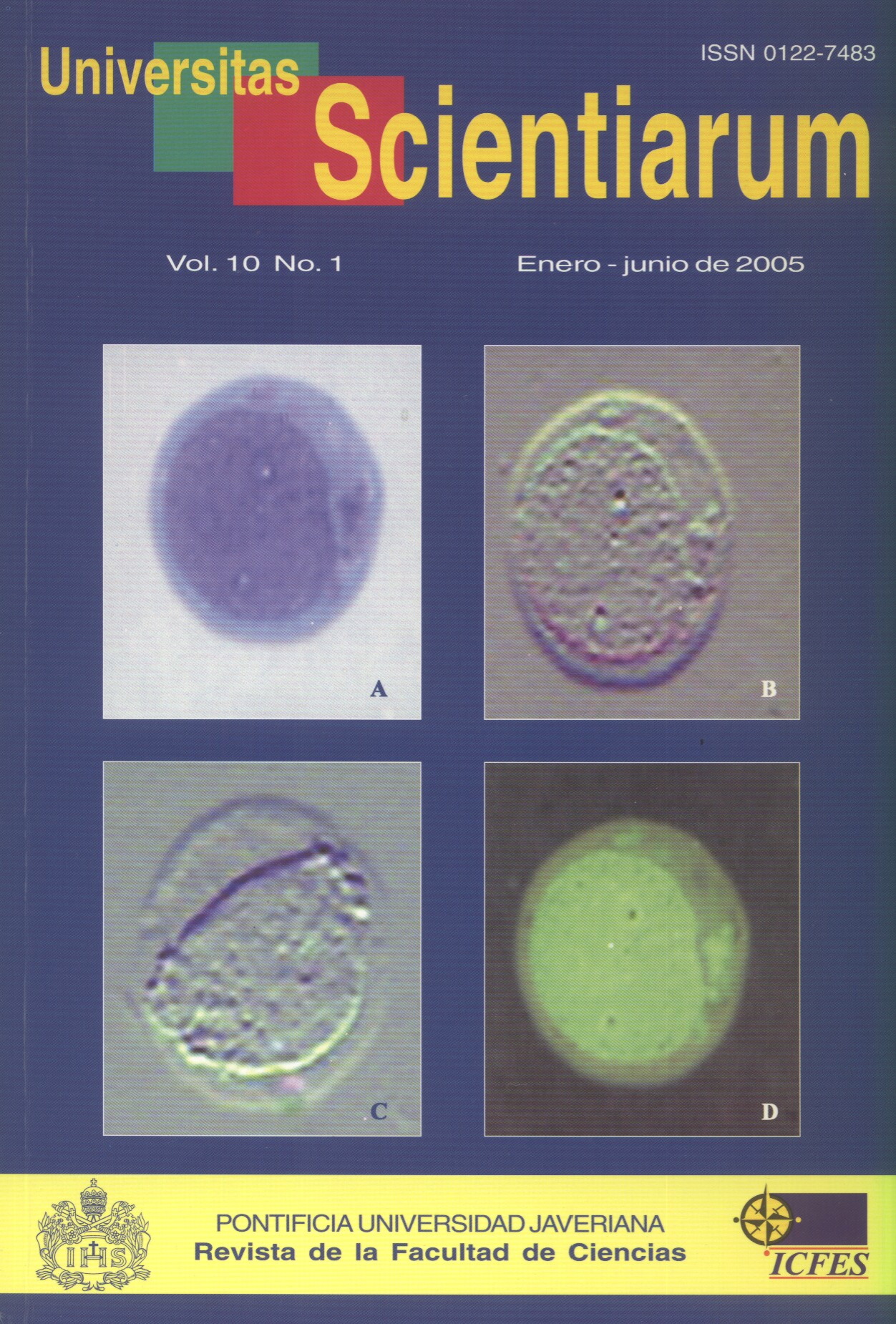Abstract
Inmunizando un grupo de diez gallinas de postura raza Lohmann de 16 semanas de edad con parvovirus canino (CPV) cepa vacunal, se obtuvieron anticuerpos IgY policlonales contra CPV en yema de huevo.
En la extracción de los anticuerpos de la yema se requirieron dos pasos, el primero para la remoción de lípidos y el segundo para la precipitación de proteínas. Para la remoción de lípidos se usó el método PBS:Cloroformo y para la precipitación de los anticuerpos solubles (Inmunoglobulinas-IgY) se usó el método de salting-out con sulfato de amonio ((NH4)2SO4). La evaluación del proceso se efectuó empleando el método comercial estándar “EGGstract IgY Purification System®” de PROMEGA.
La metodología empleada permitió la obtención de anticuerpos IgY policlonales contra CPV a partir de yema de huevo de gallina en concentraciones altas por mililitro de yema, con una pureza aceptable y títulos altos; los resultados fueron comparables con el método comercial.
Univ. Sci. is registered under a Creative Commons Attribution 4.0 International Public License. Thus, this work may be reproduced, distributed, and publicly shared in digital format, as long as the names of the authors and Pontificia Universidad Javeriana are acknowledged. Others are allowed to quote, adapt, transform, auto-archive, republish, and create based on this material, for any purpose (even commercial ones), provided the authorship is duly acknowledged, a link to the original work is provided, and it is specified if changes have been made. Pontificia Universidad Javeriana does not hold the rights of published works and the authors are solely responsible for the contents of their works; they keep the moral, intellectual, privacy, and publicity rights. Approving the intervention of the work (review, copy-editing, translation, layout) and the following outreach, are granted through an use license and not through an assignment of rights. This means the journal and Pontificia Universidad Javeriana cannot be held responsible for any ethical malpractice by the authors. As a consequence of the protection granted by the use license, the journal is not required to publish recantations or modify information already published, unless the errata stems from the editorial management process. Publishing contents in this journal does not generate royalties for contributors.



